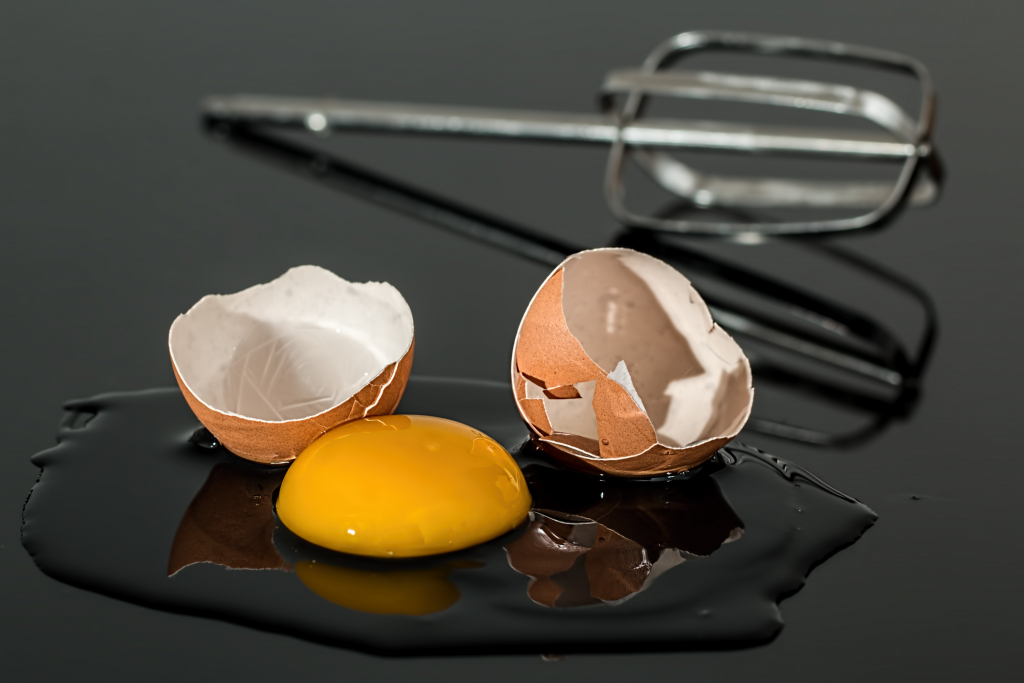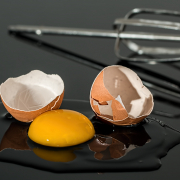
Four generations turned up at our family Thanksgiving table this year, a memorable time, indeed. Seated with honor at one end of the table was my 87-year-old mother, now bearing the title our uncle used to call the OLM (Oldest Living Member). At the opposite end in an attached baby seat perched our youngest addition, who clocked in at the six-month mark the week before the holiday. Scattered in between were two generations of adults and my very energetic grandchildren, seven and five.
My sister and her husband were our hospitable and relaxed hosts, accommodating this chaos with admirable ease. I rang up a day or two later to say thanks and check in, imagining the Aftermath. “We had such a blast having everyone,” she said cheerfully, “though we couldn’t believe the wreck left behind.”
Ah, yes. Small children in the house, and an adult party to boot, and the wreck left behind. The Aftermath is the unsung verse in the folksong of grandparenting, the thing you forget to imagine when you dream of the arrival of the little varmints and look forward to their presence at these events. We couldn’t love them more, of course, but their presence changes things, and that’s just a fact.

Three of our four generations at Thanksgiving
Before I stagger into trouble here, I offer a hasty clarification. The baby exuded charm and good nature while family members jostled for the privilege of minding her, and her two cousins were cheerfully kept occupied by a succession of doting great aunts and uncles, behaving as well as any children their age could at such a gathering. All parents involved are responsible and attentive adults, so the Aftermath did not spring from egregious lack of supervision. After seven-plus years in this grandparenting game, I’ve learned the Aftermath is not necessarily correlated to the behavior of the zoo inhabitants. It’s just what happens when kids are around, even when the kids are well-coached to clean up afterward.
Let’s examine a recent installment. Buddy and Sis spent the day before Thanksgiving with me, school being out but their parents working. The day’s activities left enough evidence behind that an astute observer, though not present, could probably still re-create our schedule. We began with art projects for the Thanksgiving hosts and other relatives and were favored with excellent output. (Aftermath: tiny construction-paper triangles on chair seats and floor, broken crayons heaped in centerpiece bowl, black marker streaks on tabletop where G-ma amateurishly failed to provide appropriate table covering. Luckily, some good table oil erased these with ease later.). We moved on to baking peanut-butter cookies for the Thanksgiving repast, which happily earned good reviews from the customers. (Aftermath: Invisible sugar grains that overflowed onto kitchen hardwoods and mysteriously stuck to shoe despite repeated attempts to wipe up; bits of peanut butter on the corkscrew handle, and no, I didn’t serve wine to the underage bakers; a measuring spoon that fell into the dog’s water bowl.). Get the picture?
And how to address the Aftermath? One does not want to avoid life-enriching opportunities with the littles, so over time, certain survival strategies emerge. Just when I start to get these things right, the kids will doubtless outgrow them, but at my house, a few key steps have kept my nose just above the Aftermath waterline.
First, begin with essentials only. Before exhaustion triumphs over motion and you collapse on the nearest horizontal surface, seal and store any open food items. No one wants cherished memories sullied by a parade of invading ants. Check the floor for objects that might impede safe progress to the bathroom or the kitchen sink. You might feel like you’ve been knocked on your butt, but it shouldn’t be because you tripped on a loose shoe or skidded on an errant piece of melting ice. Establish the visible presence of pets, verifying none are locked in a hall bathroom or hiding desperately deep under a guest bed. These things done, everything else can wait, except perhaps the rejuvenating cocktail.
The compulsive among us will think they could not sleep until the now-quiet homeplace is restored to total order, and to them I say, have at it. Just don’t look down your nose at us Aftermath veterans until you’ve been there. Trust me.
Then we progress to the next day. After a few hours sleeping the slumber of the near-dead, the kind usually available only to marathon runners, Olympic competitors and pre-school teachers, you can begin anew. Some key strategies here: Essential functional spaces, like kitchen counters and bathroom floors, require priority attention for established routine to continue. Clearing those prevents the spreading of detritus elsewhere. (See sugar example above.) These things accomplished, the rest is simple: Get to it as you can. And learn to live with an updated definition of “orderly.”
Is this approach pragmatic, or just lazy? Can we accept the lackadaisical, or should proper home management require that immediate SWAT-style restoration after every invasion? Everyone must make their own determination, but here’s what I think: I like the Aftermath. I love a pile of worn crayons, a messy stack of picture books, those paper triangles scattered on the floor under the table (though sugar on the shoe soles stretched the point slightly). While I generally favor reasonable order, the Aftermath is a sidewalk artist’s freeform sketch of the human energy that generated it. It makes the heart swell a tad and illustrates time you can’t get back. It helps you remember, like a scar on your knee from that fall on the desert hike, or a scrape on your car door from a guardrail you skimmed, luckily, while yielding to an approaching tractor on a narrow, mountainside road in rural France.
I remember as a child arising early on Saturday mornings after my parents had entertained on the previous evening. The Aftermath was usually a few crackers or nuts on a forgotten plate, maybe a couple of overlooked cocktail glasses left on sofa tables, little whiffs of fragrant bourbon still floating above the pools of melted ice they held. The aroma didn’t tempt me to steal a sip in those long-ago days, but even then, I knew instinctively that it must have been a good party.
So, before I sweep or wipe it away like a chalk picture hosed off the pavement by a rainstorm, I putter around in the Aftermath a bit, savoring thoughts of fellowship, chuckling over what put it there. It usually makes a great story, later.
Clean up when you get around to it. The next Aftermath will come along soon enough. If you are lucky.



